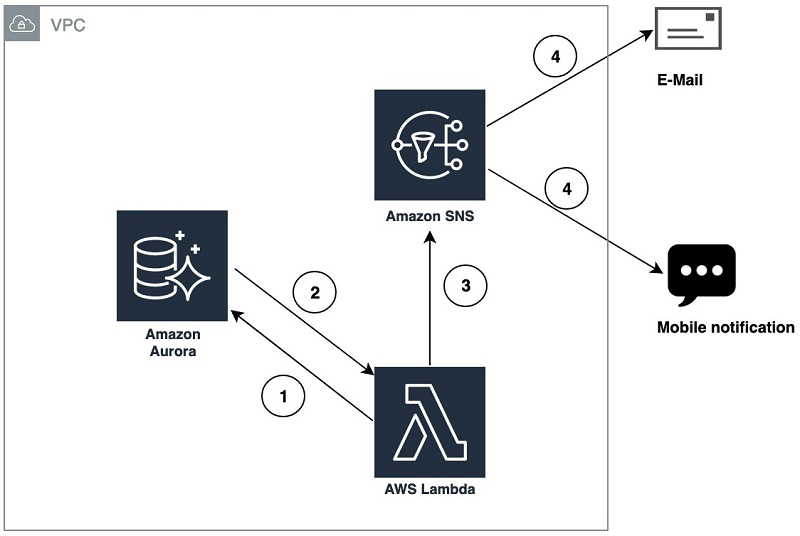AWS Database Blog
Tag: Amazon Aurora
Continuous database replication using AWS DMS to migrate from Oracle to Amazon Aurora
This is a guest post from IPG. In their own words, “IPG, based in Japan, specializes in TV-related data. We use data from broadcasters across Japan, format it for easy use and understanding, structure it with metatags, and make it simple to use on any platform, like smartphones.” This post discusses the different optimizations we […]
Migrating Autodesk’s mission-critical database from Microsoft SQL Server to Amazon Aurora MySQL
This is a guest post from Tulika Shrivastava, Software Architect from Autodesk, in partnership with Rama Thamman from AWS. In their own words, “Autodesk is a leader in 3D design, engineering, and entertainment software. If you’ve ever driven a car, admired a towering skyscraper, used a smartphone, or watched a great film, chances are you’ve […]
Amazon RDS customers: Update your SSL/TLS certificates by March 5, 2020
This post was originally published on December 20, 2019 and has been updated as of March 4, 2020. Please see new dates and suggested timeline below. IMPORTANT UPDATE: If you are experiencing connectivity issues after the RDS Root CA expires, please skip down to the What do I have to do to maintain connectivity? section. […]
Introduction to Aurora PostgreSQL cluster cache management
Amazon Aurora is a relational database service that combines the speed and availability of high-end commercial databases with the simplicity and cost-effectiveness of open source databases. The PostgreSQL-compatible edition of Aurora delivers up to three times the throughput of standard PostgreSQL running on the same hardware. This enables existing PostgreSQL applications and tools to run […]
Securing Amazon RDS and Aurora PostgreSQL database access with IAM authentication
AWS provides two managed PostgreSQL options: Amazon RDS for PostgreSQL and Amazon Aurora PostgreSQL. Both support IAM authentication for managing access to your database. You can associate database users with IAM users and roles to manage user access to all databases from a single location, which avoids issues caused by permissions being out of sync […]
Dive into new functionality for PostgreSQL 11
In this post, I take a close look at three exciting features in PostgreSQL 11: partitioning, parallelism, and just-in-time (JIT) compilation. I explore the evolution of these features across multiple PostgreSQL versions. I also cover the benefits that PostgreSQL 11 offers, and show practical examples to point out how to adapt these features to your applications.
Working with RDS and Aurora PostgreSQL logs: Part 2
July 2023: This post was reviewed for accuracy. The first post in this series, Working with RDS and Aurora PostgreSQL Logs: Part 1, discussed the importance of PostgreSQL logs and how to tune various parameters to capture more database activity details. PostgreSQL logs provide useful information when troubleshooting database issues. This post focuses on different […]
Sending notifications from Amazon Aurora PostgreSQL
Enterprise customers execute many day-to-day batch jobs on Amazon Aurora PostgreSQL databases, and need notification methods such as email or text after completing such jobs to keep track of their activity. Because Aurora PostgreSQL is a managed service, it restricts access to database extensions such as pgsmtp and pgplpythonu for security reasons. This raises the […]
Reducing Aurora PostgreSQL storage I/O costs
June 2023: For Aurora databases where IO is greater than 25% of your costs, check out this blog post and recent announcement to see if you can save money with Aurora I/O-Optimized. Cost reduction is one of the biggest drivers for many IT departments to explore migration of on-premises workloads to the cloud. This post […]
Optimizing and tuning queries in Amazon RDS PostgreSQL based on native and external tools
January 2024: This post was reviewed and updated for accuracy. PostgreSQL is one of the most popular open-source relational database systems. The product of more than 30 years of development work, PostgreSQL has proven to be a highly reliable and robust database that can handle a large number of complicated data workloads. PostgreSQL is considered […]








